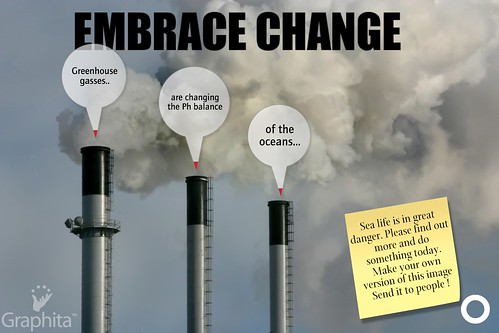 No market is perfect and when the market mechanism fails to deliver an efficient allocation of resources, we say the market fails and hence there is justification for some government intervention. From a monopolist dominating an industry to a manufacturing firm pumping out pollution, there are countless examples of market failure.
No market is perfect and when the market mechanism fails to deliver an efficient allocation of resources, we say the market fails and hence there is justification for some government intervention. From a monopolist dominating an industry to a manufacturing firm pumping out pollution, there are countless examples of market failure.
The Guardian is creating a guide to climate change, covering areas from politics to economics. The problem of climate change has been well documented and this blog considers a particular issue – the case for climate change or the environment as a market failure. In many cases just one market failure can be identified, for example an externality or a missing market. However, one of the key problems with climate change is that there are several market failures: externalities in the form of pollution from greenhouse gases; poor information; minimal incentives; the problem of the environment as a common resource and the immobility of factors of production, to name a few. Each contributes towards a misallocation of resources and prevents the welfare of society from being maximised.
 When a market fails, intervention is justified and economists argue for a variety of policies to tackle the above failures. In a first-best world, there is only one market failure to tackle, but in the case of the environment, policy must be designed carefully to take into account the fact that there are numerous failings of the free market. Second-best solutions are needed. Furthermore, as the problem of climate change will be felt by everyone, whether in a developed or a developing country, international attention is needed. The two articles below are part of the Guardian’s ultimate climate change guide and consider a huge range of economic issues relating to the problem of environmental market failure.
When a market fails, intervention is justified and economists argue for a variety of policies to tackle the above failures. In a first-best world, there is only one market failure to tackle, but in the case of the environment, policy must be designed carefully to take into account the fact that there are numerous failings of the free market. Second-best solutions are needed. Furthermore, as the problem of climate change will be felt by everyone, whether in a developed or a developing country, international attention is needed. The two articles below are part of the Guardian’s ultimate climate change guide and consider a huge range of economic issues relating to the problem of environmental market failure.
Why do economists describe climate change as a ‘market failure’? Guardian, Grantham Research Institute and Dunca Clark (21/5/12)
What is the economic cost of climate change? Guardian (16/2/11)
Questions
- What is meant by market failure?
- What are the market failures associated with the environment and climate change? In each case, explain how the issue causes an inefficient allocation of resources and thus causes the market to fail? You may find diagrams useful!
- What is meant by the first-best and second-best world?
- What does a second-best solution aim to do?
- Using diagrams to help your explanation, show how a tax on pollution will have an effect in a first best world, where the only market failure is a negative externality and in a second best world, where the firm in question is also a monopolist.
- What solutions are there to the problem of climate change? How effective are they likely to be?
- Does the need to tackle climate change require international co-operation? Can you use game theory to help your explanation?!